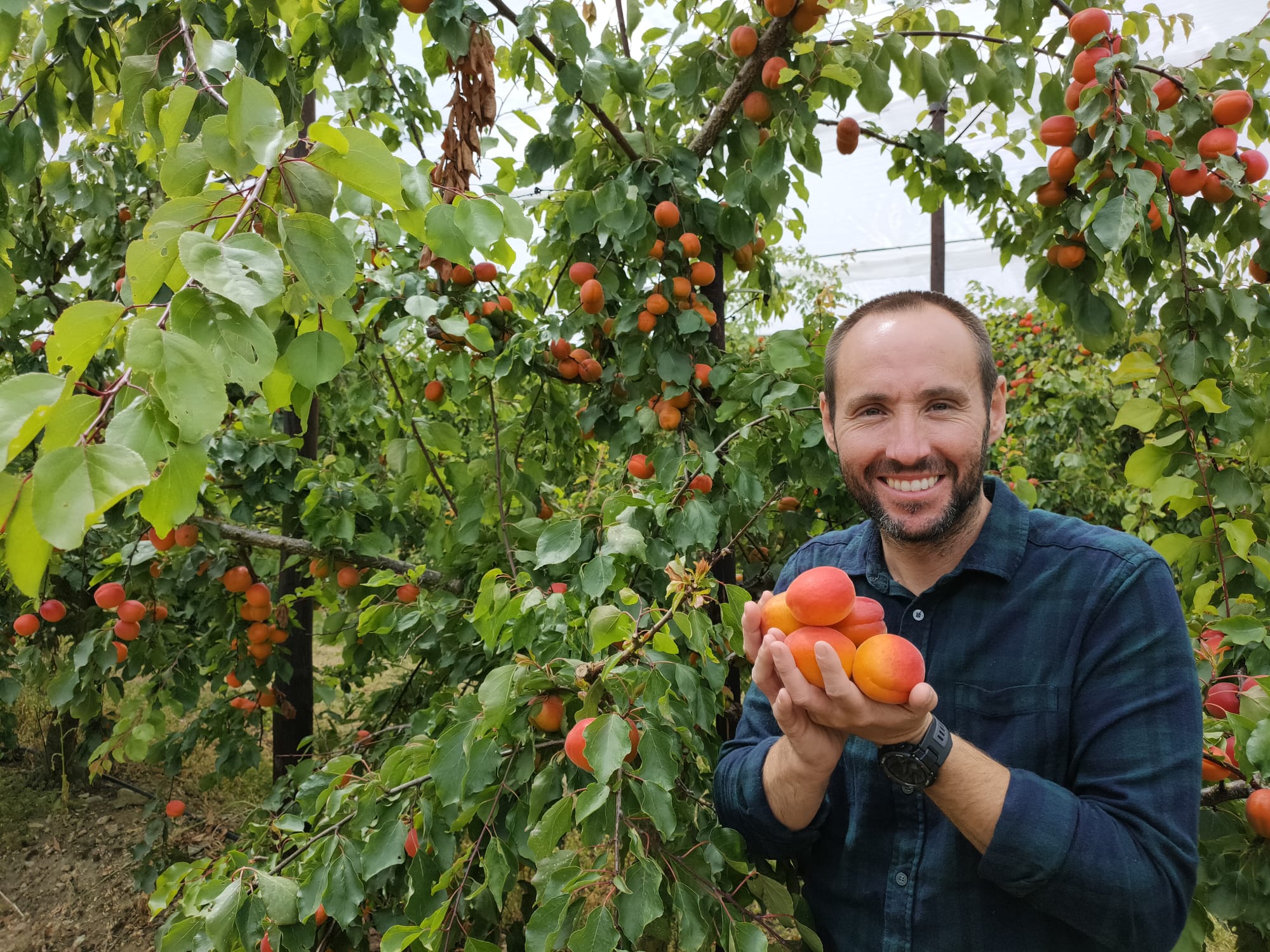British apricot production ‘not considered possible’ flourishing 10 years on
Many agronomists suggested it would not be sustainable to grow apricots in the British climate – but a decade on the industry is thriving.

Your support helps us to tell the story
From reproductive rights to climate change to Big Tech, The Independent is on the ground when the story is developing. Whether it's investigating the financials of Elon Musk's pro-Trump PAC or producing our latest documentary, 'The A Word', which shines a light on the American women fighting for reproductive rights, we know how important it is to parse out the facts from the messaging.
At such a critical moment in US history, we need reporters on the ground. Your donation allows us to keep sending journalists to speak to both sides of the story.
The Independent is trusted by Americans across the entire political spectrum. And unlike many other quality news outlets, we choose not to lock Americans out of our reporting and analysis with paywalls. We believe quality journalism should be available to everyone, paid for by those who can afford it.
Your support makes all the difference.The British apricot industry is set to have its biggest crop ever 10 years after it first began growing the fruit in Kent.
A decade ago, a small number of mainly Kentish fruit farmers produced the first crop of British-grown apricots, despite warnings from agronomists that growth of the fruit would not be sustainable due to the British climate.
This year’s harvest is set to amount to 250 tonnes of the stone fruit – a huge increase from the 40 tonne harvest in 2012.
Not only is that harvest likely to last until around mid-September, it means Britain is likely to be the only place in the world where apricots are in production at that time of year.
Supermarket Tesco partnered with a number of the Kent apricot growers to fill its shelves with local produce.
Tesco was instrumental in helping set up the nascent British apricot industry and started working on a production partnership with DPS, one of the UK’s largest stone fruit suppliers back in 2010.
Tesco stone fruit buyer Maria Katsipi said: “The apricots are grown in the ‘Garden of England’ – an area that produces arguably the best apples, pears, and strawberries in the world because of its gentle slopes and fantastic microclimate.
“Now 10 years on, the quality of the apricots grown this year that will hit our shelves next week are world class – as good if not better than the ones produced in France and Portugal.
“UK shoppers have a great affinity for British-grown fruit and can’t get enough of these English apricots.”
Tesco was instrumental in helping set up the nascent British apricot industry and started working on a production partnership with DPS, one of the UK’s largest stone fruit suppliers back in 2010.
Until the late noughties British apricot production was not thought possible because of our cooler climate.
This year has been a very good growing season with the right amount of rain, sunshine and the recent heatwave has helped create a high quality crop
But the arrival on the market of apricot cultivars – tree hybrids bred especially for cooler climates which would flower later in the spring – have made British apricot production possible.
Apricot trees still need a lot of sunshine and as a result all the production at the moment is in the southern counties of England, with growers mainly in Kent and one on the Isle of Wight.
David Moore, owner of Home Farm near Maidstone, is now the UK’s biggest grower of English apricots, and Tesco’s main supplier who this summer looks set to produce a record-breaking 136 tonnes.
Mr Moore said: “Production has really improved in the last 10 years and we are now far better prepared for the changeable British weather.
“Ironically, the cooler British night-time temperature produces very high quality apricots as the fruit grows more slowly, resulting in a more intense and sweet taste plus a stronger, richer colour than imported varieties from France and Portugal.
“In the last 10 years we’ve learned about understanding the light needs of fruit ripening for these new varieties and so we have adopted our pruning style to maximise the amount of light reaching the fruit bearing parts of the tree.
“In addition we have had to learn how to combat the effect of frost in the early season growing stages and we now have an insulating crop cover structure to protect the crop from the extremes of the UK climate.
“This year has been a very good growing season with the right amount of rain, sunshine and the recent heatwave has helped create a high quality crop.”
The first English apricots of the season will hit Tesco stores from next week, priced at £1.50 per punnet.